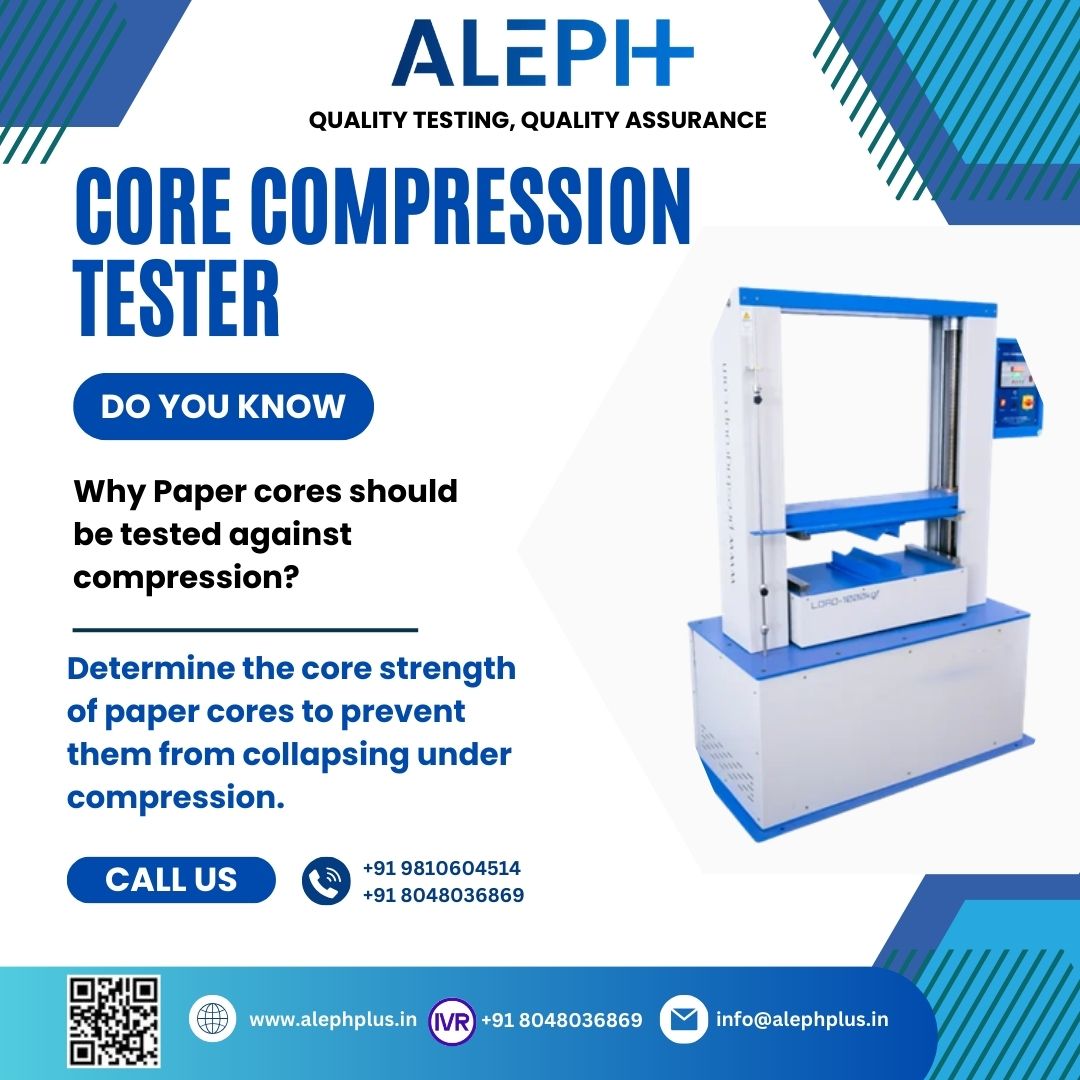
Core Compression Testers
In the realm of materials testing, where precision and reliability are paramount, the Core Compression Tester stands as a vital tool for assessing the strength and durability of various substances. This blog delves into the significance, functionality, and applications of Core Compression Testers, shedding light on their essential role in quality control and research processes.
Understanding Core Compression Testers:
A Core Compression Tester is an advanced instrument designed to measure the compressive strength of materials, especially concrete and similar construction materials. This testing apparatus is pivotal in ensuring that the materials used in construction projects possess the necessary strength to withstand the intended loads and environmental conditions.
Key Features and Components:
1. Load Frame: The load frame is a robust structure that provides stability and support during the compression testing process. It accommodates the specimen securely, ensuring accurate and consistent results.
2. Hydraulic System: Core Compression Testers typically employ hydraulic systems to apply a controlled and uniform force on the specimen. This ensures precision in measuring compressive strength.
3. Control Panel: Equipped with a user-friendly control panel, operators can regulate the testing parameters, monitor the testing process, and collect data efficiently.
4. Testing Accessories: Various accessories, such as platens and fixtures, are used to accommodate different specimen sizes and shapes, allowing for versatile testing capabilities.
Applications of Core Compression Testers:
1. Construction Industry: Core Compression Testers play a crucial role in evaluating the compressive strength of concrete cores extracted from structures. This data is vital for assessing the structural integrity of buildings and infrastructure.
2. Research and Development: In material science research, Core Compression Testers contribute to the exploration of new materials and formulations, providing insights into their strength characteristics.
3. Quality Control: Manufacturers use Core Compression Testers to ensure that their products meet industry standards. This is particularly important in industries where material strength is a critical factor, such as manufacturing of building materials.
Benefits:
1. Accuracy: Core Compression Testers provide accurate and repeatable results, ensuring the reliability of material strength assessments.
2. Efficiency: The automated features of modern Core Compression Testers enhance efficiency, allowing for quicker and more streamlined testing processes.
3. Compliance: Meeting industry standards and regulations is essential. Core Compression Testers assist in ensuring that materials comply with established norms.
Conclusion:
As an indispensable tool in the world of materials testing, the Core Compression Tester plays a pivotal role in guaranteeing the structural integrity and quality of various materials. Whether in construction projects, research laboratories, or manufacturing settings, the precision and reliability offered by Core Compression Testers contribute significantly to advancements in material science and the overall quality of our built environment.
